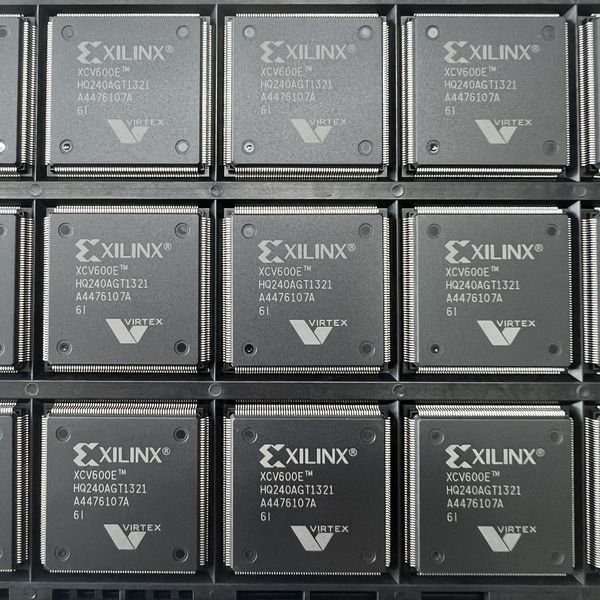The Xilinx XCV600E-6HQ240I is a Field-Programmable Gate Array (FPGA) manufactured by Xilinx. Here are the key details about this FPGA:
- Manufacturer: Xilinx
- Part Number: XCV600E-6HQ240I
- Type: FPGA (Field-Programmable Gate Array)
- I/O Count: 158 I/Os
- Package/Case: 240QFP (Quad Flat Package)
-
DataSheet XCV600E-6HQ240I PDF
Purpose:
FPGAs are semiconductor devices designed to be reconfigured after manufacturing, allowing for the implementation of customizable digital logic circuits. The XCV600E-6HQ240I is designed for applications requiring a moderate number of I/Os and moderate logic capacity.
Applications:
FPGAs find applications in various industries including:
- Telecommunications: In networking equipment for protocols, interfaces, and signal processing.
- Industrial Automation: Providing customizable control and interfacing capabilities in automation systems.
- Test and Measurement Equipment: Leveraging FPGAs for signal processing and data acquisition functions.
- Avionics and Aerospace: Utilized in radar systems, communication equipment, and control systems due to their reconfigurability and adaptability.
Development and Programming:
Xilinx provides development tools such as the ISE Design Suite or Vivado Design Suite for designing, programming, and debugging FPGAs like the XCV600E-6HQ240I. Hardware Description Languages (HDL) like Verilog or VHDL are used to describe the desired behavior of circuits, and the Xilinx tools synthesize these descriptions into FPGA configurations.
Features:
- Moderate I/O Count: With 158 I/Os, this FPGA can interface with a moderate number of external devices.
- Moderate Logic Capacity: While not as large as some higher-tier FPGAs, this device is still capable of implementing various digital systems.
- Package Type: The 240QFP package is a Quad Flat Package, offering a surface-mount packaging option for the FPGA, suitable for many compact designs.
Summary:
The Xilinx XCV600E-6HQ240I FPGA is a versatile mid-range FPGA suitable for a range of applications, offering a balance of logic capabilities and I/O interfacing. While smaller than some higher-end FPGAs, it still provides the reconfigurable and adaptable nature characteristic of FPGAs. Developers working with this FPGA should refer to the device datasheet, user guides, and reference designs provided by Xilinx to effectively utilize its features and capabilities in their designs.




